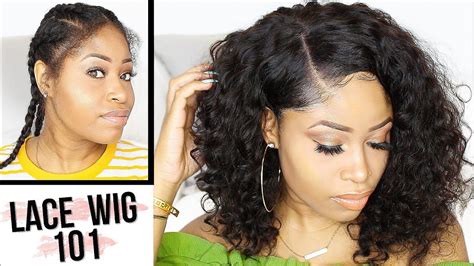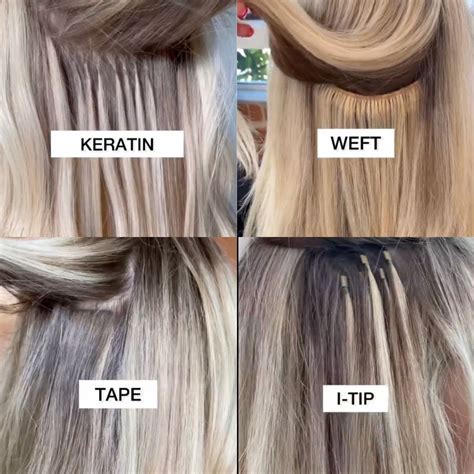Seamlessly Enhance Your Style with Hair Extensions
Hair extensions have become an integral part of the beauty industry, empowering individuals to transform their hair length, volume, and style in an instant. With an array of options available, choosing the perfect extension type can be overwhelming. This guide delves into the five primary types of hair extensions, highlighting their unique characteristics, benefits, and considerations to help you make an informed decision.

Clip-in extensions offer a versatile and temporary solution for instant hair enhancement. These extensions consist of hair wefts attached to clips that can be easily snapped into place, allowing you to remove them before bedtime. Clip-ins are ideal for occasional use, special occasions, or experimenting with different styles without committing to a permanent change.
Benefits:
- Quick and effortless application
- Removable for convenience
- Variety of colors, textures, and lengths available
Considerations:
- Can be visible at the roots if not applied correctly
- Limited volume compared to other extension types
- Requires daily removal and reapplication
Tape-in extensions involve thin wefts of hair bonded to adhesive tapes that are attached in sandwiches to your natural hair. They provide a secure and discreet hold, allowing for natural blending and comfortable wear. Tape-ins typically last for 4-8 weeks and can be reused multiple times with proper maintenance.
Benefits:
- Seamless and natural-looking
- Longer-lasting than clip-ins
- Can be styled with heat tools
Considerations:
- Requires professional installation and removal
- May cause scalp irritation if not applied properly
- Removal can be time-consuming
Sew-in extensions are the most permanent form of hair extensions, offering the longest-lasting results. This method involves weaving individual hair strands into braids or tracks that are then sewn onto your natural hair. Sew-ins create a seamless and voluminous effect that can last for up to a year with proper care.
Benefits:
- Long-lasting and durable
- Provides maximum volume and length
- Can be customized to create specific styles
Considerations:
- Requires professional installation and removal
- Time-consuming and expensive process
- Can cause scalp tension if not maintained properly
Fusion extensions utilize heat to bond individual strands of hair extensions to your natural hair using keratin or heat-activated glue. This technique offers a long-lasting hold similar to sew-ins, with a lifespan of 3-6 months. Fusion extensions provide a natural-looking and customizable solution that can withstand heat styling.
Benefits:
- Strong and durable bond
- Minimal visibility
- Heat-resistant for versatile styling
Considerations:
- Requires specialized equipment and techniques
- Can be damaging to natural hair if not applied properly
- Removal process can be complex
Micro-link extensions use tiny metal or silicone rings to attach individual hair extensions to small strands of your natural hair. This method creates a secure hold without the use of heat or glue, making it a less damaging option. Micro-links typically last for 2-3 months and offer a natural and versatile appearance.
Benefits:
- Less damaging to natural hair
- Can be applied without chemicals or heat
- Provides a natural-looking result
Considerations:
- Requires professional installation and removal
- May be more time-consuming to apply
- Can be visible at the roots if not maintained properly
Choosing the Right Extension Type
Selecting the ideal hair extension type depends on your individual needs, lifestyle, and hair goals. Consider the following factors when making your decision:
- Durability and longevity
- Level of maintenance and care required
- Cost and availability
- Stylist experience and expertise
Helpful Decision-Making Table
| Extension Type | Duration | Maintenance | Cost | Suitability |
|---|---|---|---|---|
| Clip-In | Temporary | Daily removal and reapplication | Low | Occasional use, experiments |
| Tape-In | 4-8 weeks | Monthly tightening | Moderate | Long-term wear, special occasions |
| Sew-In | Up to a year | Every 6-8 weeks | High | Permanent solution, maximum length and volume |
| Fusion | 3-6 months | Every 2-3 months | High | Strength, durability, heat styling |
| Micro-Link | 2-3 months | Every 6-8 weeks | Moderate | Less damaging, natural appearance |
Tips for Long-Lasting Extensions
- Choose high-quality hair extensions from reputable suppliers.
- Seek professional installation and removal to avoid damage.
- Follow proper care instructions, including regular brushing, washing, and conditioning.
- Avoid excessive heat styling and chemicals to prolong the lifespan of your extensions.
Innovation in Hair Extensions: “FoilFusion”
Bridging the gap between sew-ins and fusion extensions, “FoilFusion” is an innovative technique that combines elements of both methods. Hair extensions are bonded to thin sheets of foil using a heat-activated adhesive. These foils are then sewn into your natural hair tracks, creating a long-lasting and secure hold while minimizing damage to natural hair.
Conclusion
Hair extensions empower individuals to unleash their hair creativity, whether it be for a temporary transformation or a long-term style upgrade. By understanding the different types of extensions available, their benefits, and considerations, you can make an informed decision that aligns with your desired look and lifestyle. With proper care and maintenance, hair extensions can provide years of luscious locks that boost confidence and elevate your hair game.
